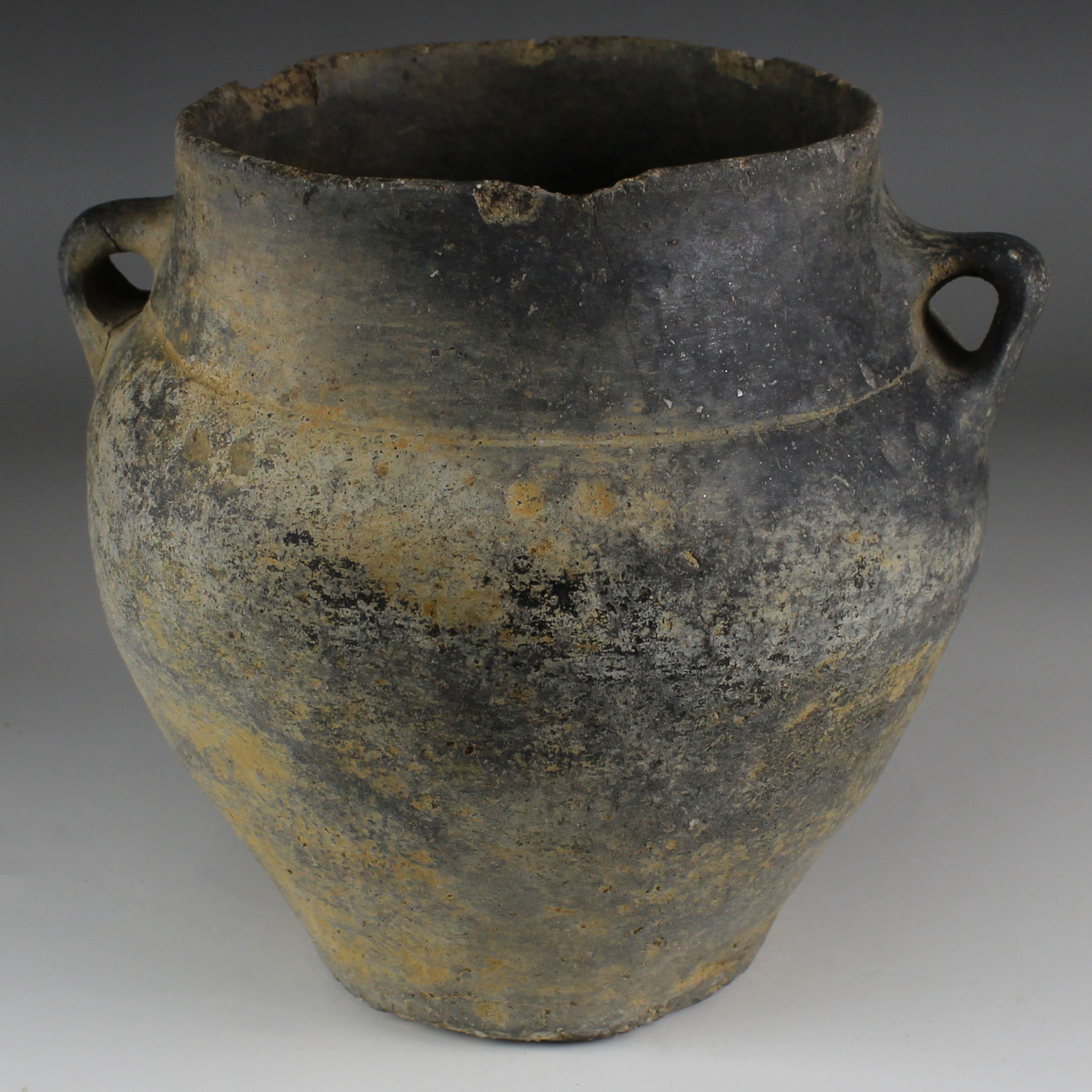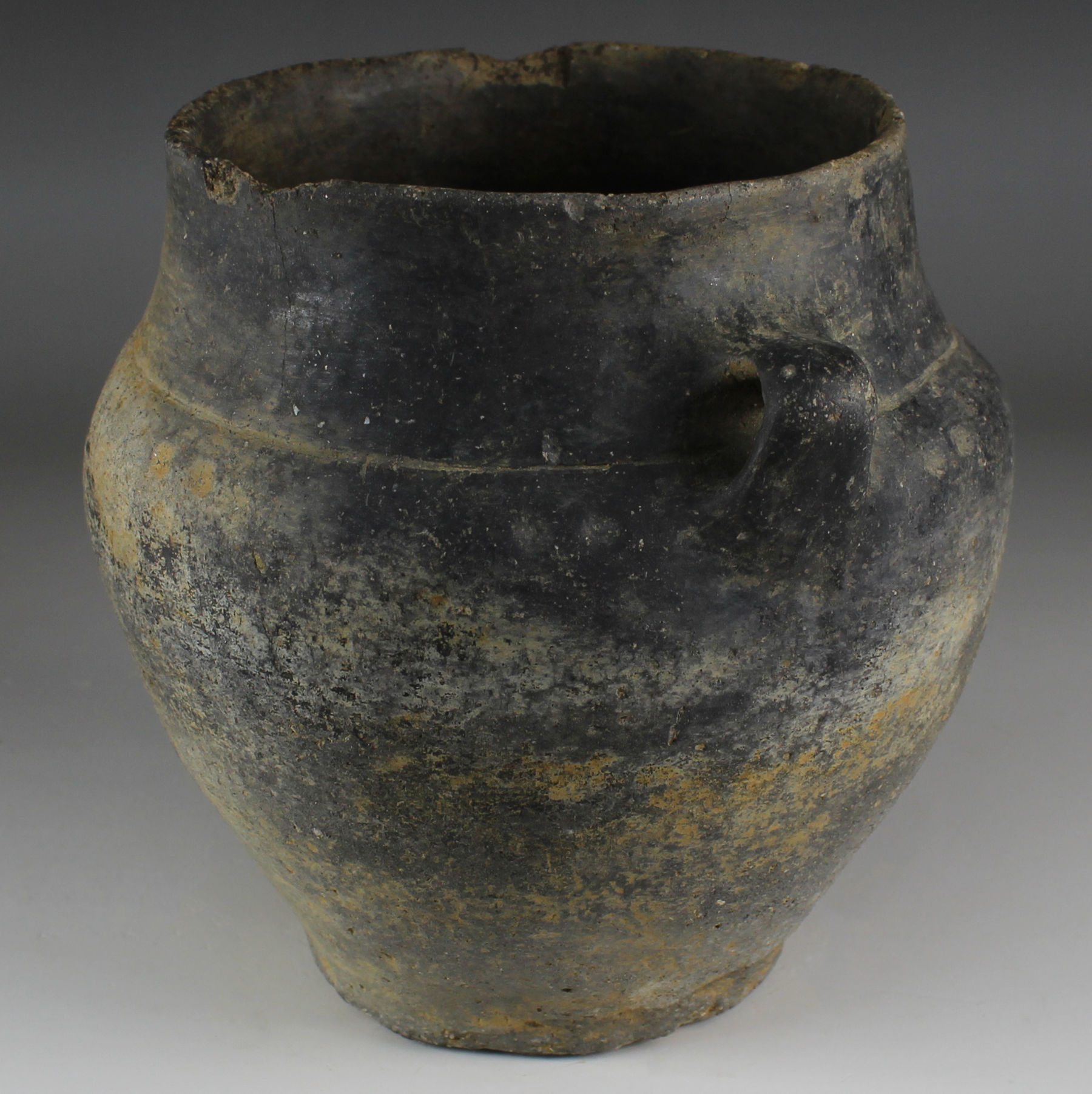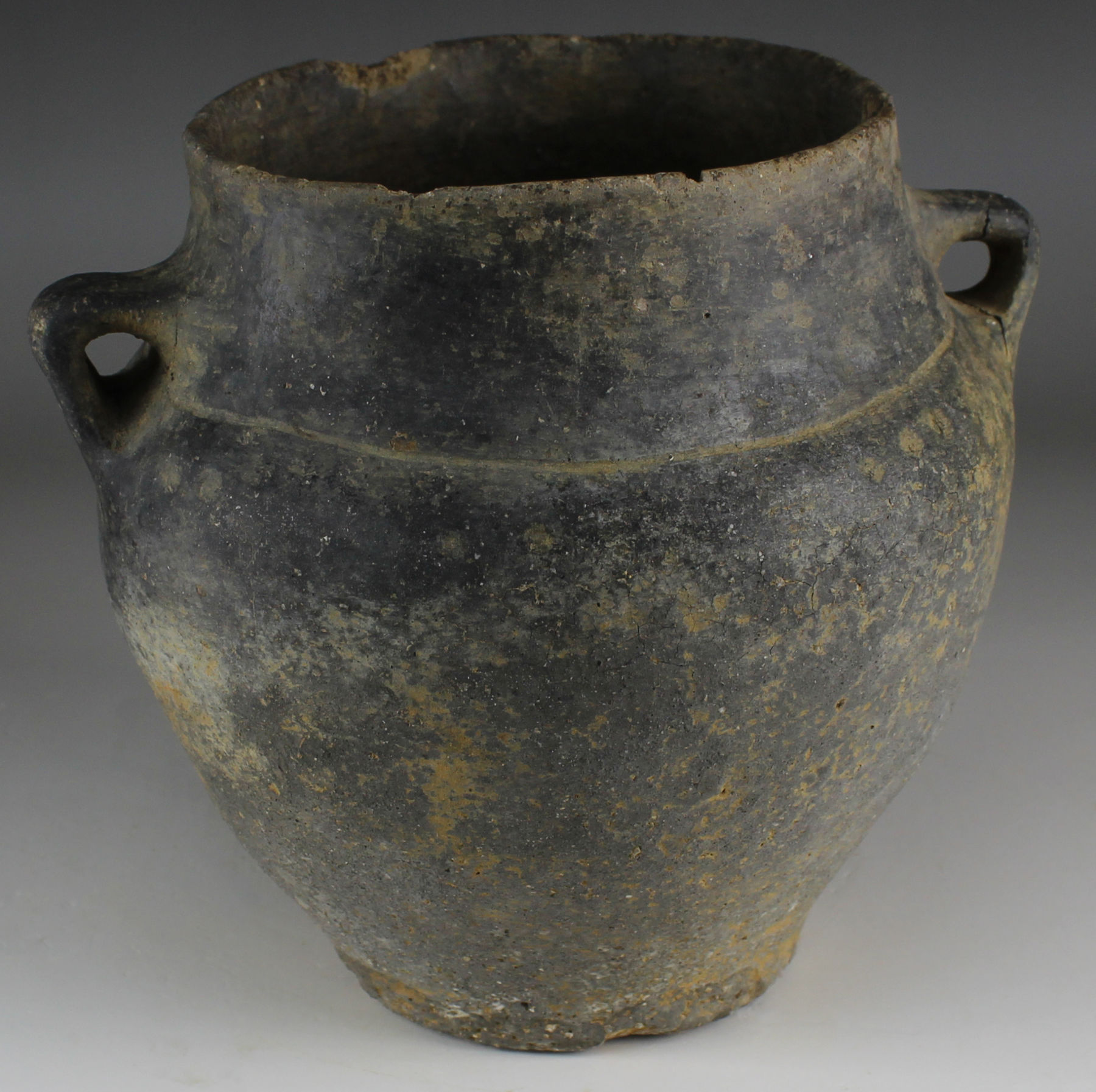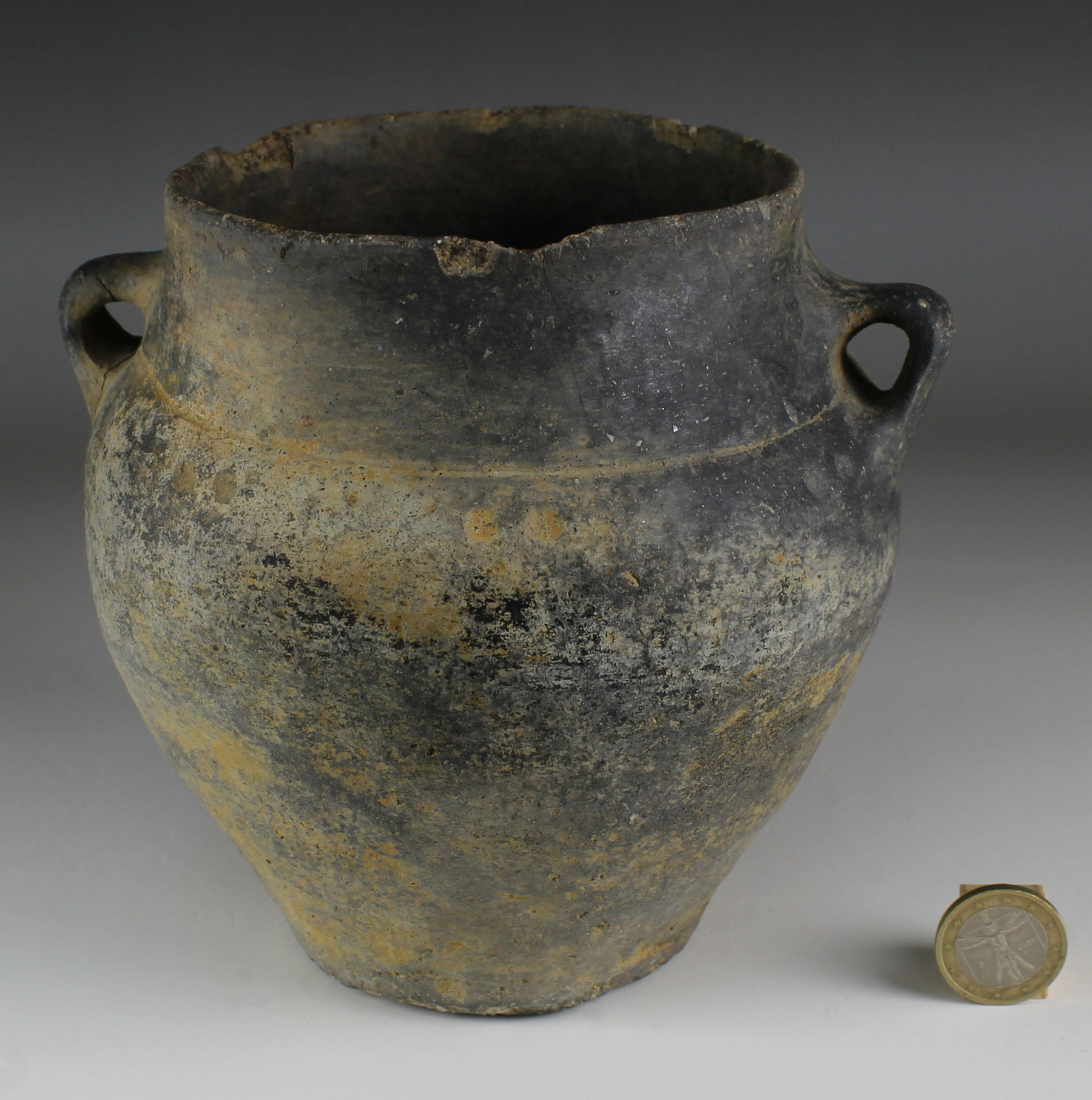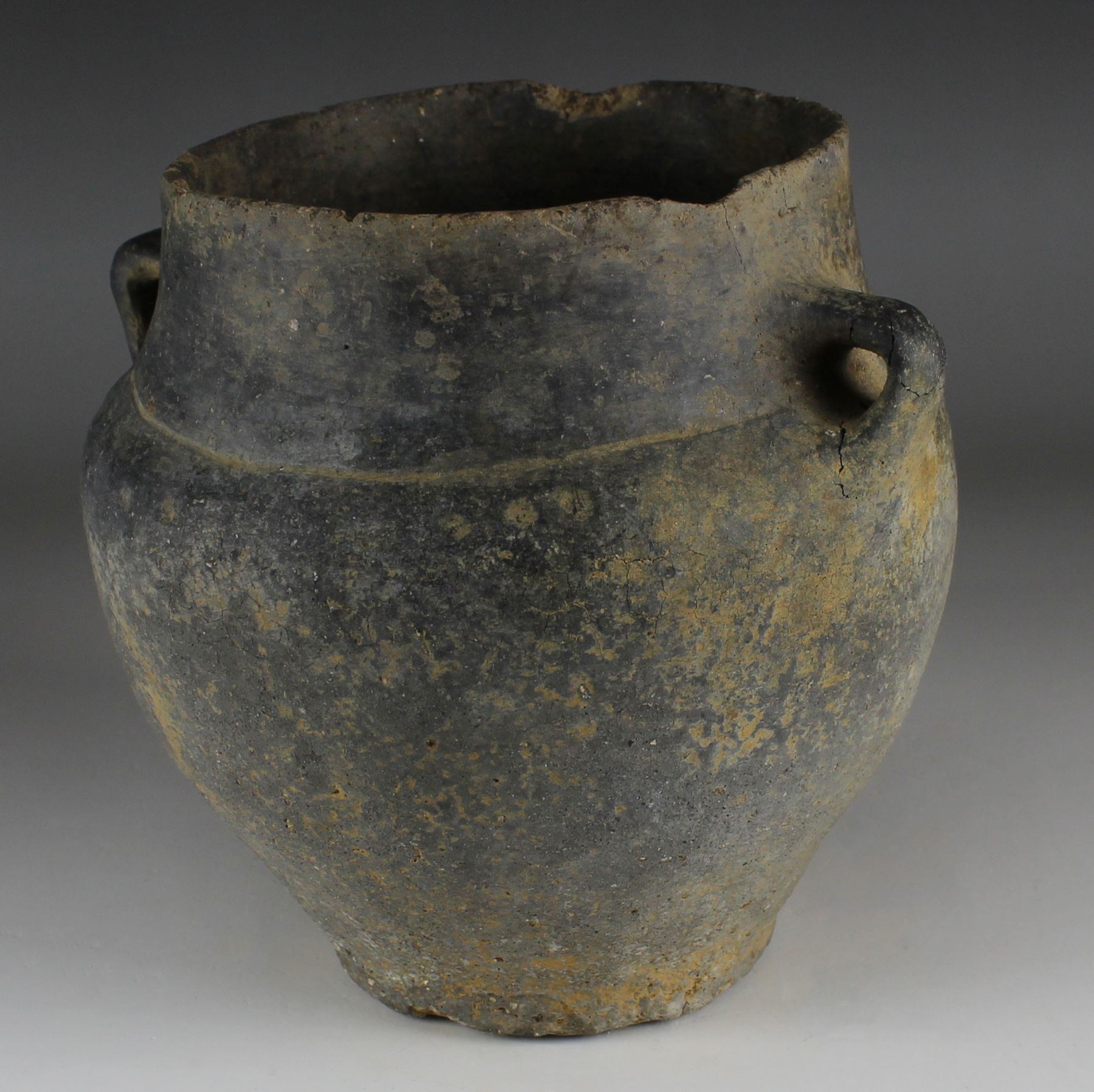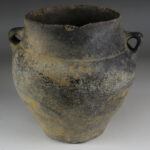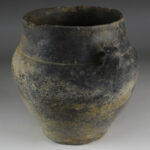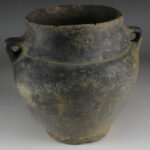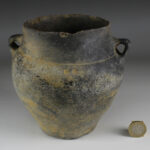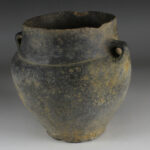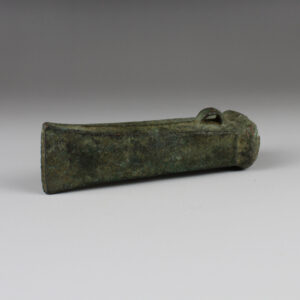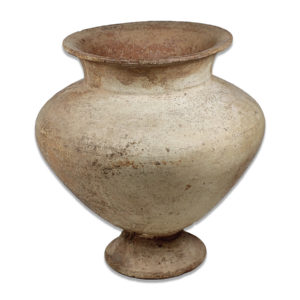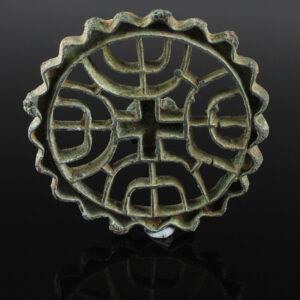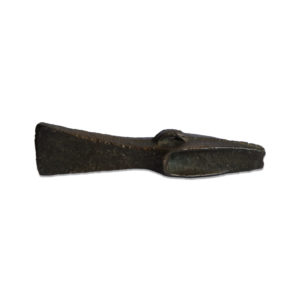Description
| ITEM | Vessel |
| MATERIAL | Pottery |
| CULTURE | Bronze Age, Urnfield |
| PERIOD | 1300 – 750 B.C |
| DIMENSIONS | 140 mm x 163 mm |
| CONDITION | Good condition |
| PROVENANCE | Ex American private collection, acquired before 2000s |
| BIBLIOGRAPHY | JOURNAL OF ARCHAEOLOGICAL SCIENCE, REPORTS 42. The Late Bronze Age ’metallurgists’ graves’ in south-western Poland. Tracing the provenance of the metal raw material using casting moulds (2022) LOZNJAK DIZDAR, D., The Late Urnfield cemetery in the Drava Valley and the problem of the beginning of the Late Urnfield culture in Nothern Croatia (2017) |
The Urnfield culture was a late Bronze Age culture of Central Europe, often divided into several local cultures within a broader Urnfield tradition. The name comes from the custom of cremating the dead and placing their ashes in urns, which were then buried in fields. The first usage of the name occured in puplications over grave sites in southern Germany in the late 19th century. Over much of Europe, the Urnfield culture followed the Tumulus culture and was succeeded by the Hallstatt culture. Some linguists and archaeologists have associated this culture with the Proto-Celtic language, or a pre-Celtic language family.


